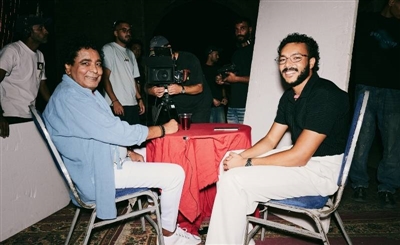Intibint Probes Culture & Identity in ‘What Are You Willing to Do’ EP
The British-Yemeni singer-songwriter opens up about her lifelong navigation of cultures in conflict in a raw and honest debut EP.

In a masterful debut display, British-Yemeni singer-songwriter Intibint weaves together a tapestry of an EP in What Are You Willing to Do, a personal tale that addresses the familiar question of navigating dual and conflicting identities through an intensely expressive palette.
Flowing as a palpably uninterrupted stream, Intibint’s vocals smoothly ride the stretched hum of the beats throughout the EP, while the patient and slow-moving pace of the songs allows listeners to witness a clear view of the artist. While the tempo certainly suits her honeyed vocals, the intense focus on her voice can be considered a deliberate decision by the Yemeni artist to present herself undisguised and in a position of vulnerability, an act of defiance against cultural customs determined to build a blanket of protection around women. As such, the central stage set for her vocals serves as a self-declaration that asserts her own visibility and refuses to quieten.Her pseudonym, Intibint, translates to “you are a girl” in Arabic, echoing a logic behind warnings passed on to her by her mother against desired behaviour on the basis of her gender. The act of wearing the phrase as her stage name reflects the London-based musician’s subversive spirit once more, as she takes a statement often intent on undermining and disempowering women and transforms it into a rallying call of encouragement for herself, and for others like her.
With a defiant character that appears to have been forged by necessity in navigating the dual-cultural clashing upbringing of a conservative Yemeni heritage while residing in London, she openly steers through and retells such struggles throughout the album, whether they be in revealing a secret relationship to her mother as recounted in the self-produced ‘Telling My Mother’, or learning to uninhibit her Yemeni identity in relationships amidst a wider climate of casual racism and Islamophobia.
What Are You Willing to Do is audibly characterised by a dark aesthetic. It does not appear to conclude with a definitive note or to climax at any moment of self-realisation, but as she comfortably incorporates English and Arabic within her songs she appears to express herself in a truly distinct and honest voice throughout the EP. Essentially, her balancing acts between cultural questions are unlikely to end. Instead, they are presented as ongoing personal struggles in which Intibint will and must continue to navigate between identities ever in conflict, and to voice the sound of herself within it.
- Previous Article test list 1 noise 2024-03-13
- Next Article Masked Moroccan Snor Returns From Hiatus with ‘Hkaya’
Trending This Month
-
Nov 24, 2025






















